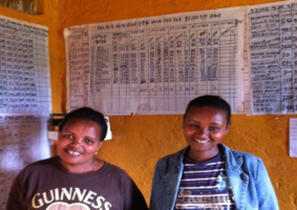
The governments of the UK and US hosted the “Millennium Development Goal Countdown 2013” during the United Nations General Assembly, in New York on 24th September. The event aimed to showcase how girls and women are a force for change in helping the world achieve the Millennium Development Goals and to showcase inspiring examples of women’s leadership and innovative projects that are transforming societies. The Executive Director of UN Women Phumzile Mlambo-Ngcuka, discussed the importance of harnessing the energy and potential of women and girls in the post 2015 MDG agenda; while UK Secretary of State for International Development, Justine Greening, argued that investing in girls and women led to a virtuous cycle of development.
For Millennium Development Goal 6, “Combat HIV/AIDS, malaria and other diseases” a single case study was selected “Health heroes: Women taking the lead in health in Ethiopia”.The case study was submitted by the Global Fund to Fight HIV, Tuberculosis and Malaria and highlights the importance of frontline female health extension workers in the fight against tuberculosis and other diseases. To date, 37,000 female health extension workers (HEWs) have been recruited, trained and deployed at the local level in Ethiopia (pictured). The Global Fund case study highlights results from the TB REACH project in Sidama, Ethiopia where female HEWs collect sputum and prepare smears directly from individuals during their door-to-door community visits and send them to laboratories. The results are positive because bringing TB diagnostic and treatment services close to communities has increased access, particularly for women, the elderly and children. TB notification rates have doubled and a significant improvement in treatment outcomes has been achieved. For detailed results seeYassin et al 2013.
The TB REACH project has now been expanded to four additional zones and further scale-up is being planned. LSTM’s Dr. Sally Theobald presented the case study on behalf of the Global Fund and as part of the event was interviewed by Nicholas Kristof, a journalist for the New York Times with a strong interest in gender issues and frontline health workers.
